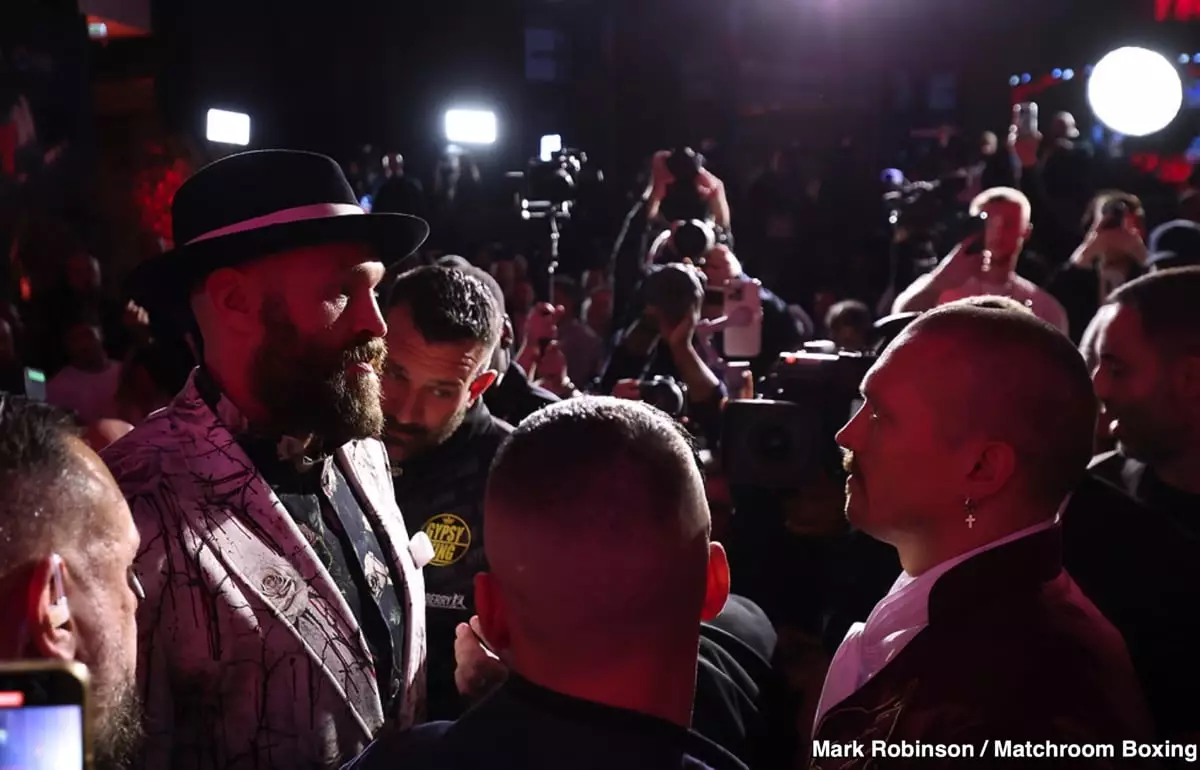Wladimir Klitschko, the former heavyweight champion renowned for his remarkable reign, is once again the center of speculation surrounding a potential comeback to boxing. Recently, reports surfaced suggesting that Klitschko is entertaining the possibility of returning to the ring—especially fueled by the aspirations of Saudi businessman Turki Alalshikh, who expressed his desire to witness Klitschko attempt to overhaul George Foreman’s record as the oldest heavyweight champion. This narrative raises critical questions about the motivations behind such a comeback and the implications it would hold for the heavyweight landscape.
The Context of Usyk and Fury’s Clash
Cemented in the spotlight and currently supporting his compatriot Oleksandr Usyk, Klitschko’s involvement fine-tunes our understanding of his viewpoint. Usyk’s match against Tyson Fury is not only pivotal for heavyweight boxing but also has a personal stake for Klitschko. During his interaction with Sky Sports, Klitschko asserted confidence in Usyk, claiming that a victory for Usyk would effectively seal his own fate in retirement. Such statements speak volumes about Klitschko’s respect for Usyk’s prowess and his reluctance to jeopardize his legacy by stepping back into the ring against his own countryman.
Klitschko’s unique position distance himself from fighting Usyk while contemplating the idea of a rematch with Fury underlines his selective approach. He appeared firm in his decision to stay retired should Fury win, stating, “I’m going to stay in retirement. He’s [Usyk] going to keep me in retirement.” This resoluteness reflects a clarity not often seen in athletes faced with the allure of a return to their former glory.
When delving deeper into Klitschko’s statements regarding Usyk, one senses a historical reverberation. Klitschko predicts a strong possibility that Usyk will replicate his earlier success against Fury, dubbing it a case of “deja vu.” Such prophetic confidence highlights Klitschko’s analytical view of boxing—a sport steeped in tradition and precedent. The psychological underpinnings at play here suggest that Klitschko does not merely see Usyk as a potential champion, but rather as a symbolic figure embodying the continuation of a legacy that he has created.
However, the inherent unpredictability of sports adds layers of complexity to any assessment. While Klitschko’s analysis suggests a likely outcome based on past performances, the mere presence of Tyson Fury—an unpredictable and tenacious competitor—transforms this fight into an exquisite chess game, with collective anticipation from fans all around the globe.
As the weight of Fury’s upcoming clash with Usyk approaches, speculation will remain rampant regarding Klitschko’s possible comeback. The official weigh-in adds yet another intriguing dimension to the unfolding narrative. Will the outcome of this pivotal matchup influence Klitschko’s next steps, or is retirement truly a definitive chapter for the former champion? For now, all eyes are undoubtedly fixated on this monumental clash, while Klitschko stands at a crossroads of retirement and rising aspirations. The future may be uncertain, but the legacy of Champions prevails in every punch thrown and every decision made.

